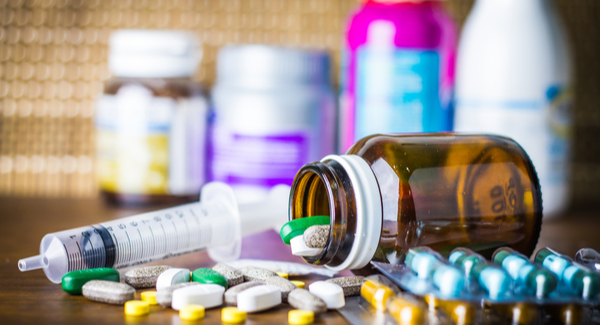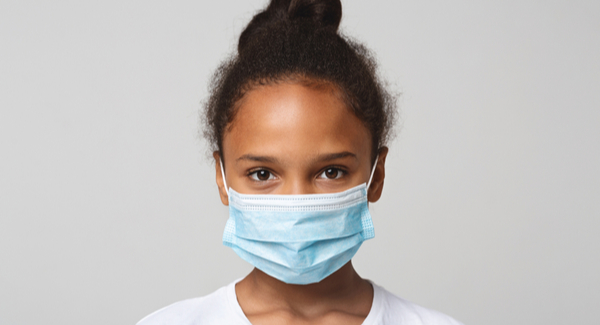COVID-19 Myths for People With Arthritis
There are still many unknowns about the coronavirus for people arthritis, but these rumors can be put to rest.
Debunking Common Coronavirus Myths
COVID-19 is commonly referred to as the “novel coronavirus” because it is new to humans. As such, there are many unanswered questions about the virus and, unfortunately, plenty of false information and rumors circulating about it. To better protect yourself, it’s important to be selective of where you get your news. The CDC, National Institutes of Health and the Arthritis Foundation are good places to start. In the meantime, learn the truth about these common coronavirus myths.
MYTH: Certain immunosuppressive medications have been proven to prevent or treat COVID-19.
There’s plenty of buzz about the malaria and popular lupus and RA drug hydroxychloroquine (Plaquenil) to treat and protect against COVID-19. But there’s not enough evidence to suggest that the drug helps prevent infection. There are no FDA-approved treatments for the virus, and the FDA warns against using hydroxychloroquine and another drug in the same family also used to treat malaria, chloroquine, outside of hospital and clinical trials, citing possible heart problems.
MYTH: Taking certain supplements will protect you from getting infected.
No vitamin, mineral or supplement can protect you from getting the virus. However, healthy habits may help support your immune system. These include getting plenty of moderate exercise (too much vigorous exercise can have negative health effects), adequate sleep and eating a healthy diet. While no pill or food can prevent COVID-19, certain vitamins, minerals and supplements may improve your ability to stay healthy or recover faster.
MYTH: Exposing yourself to high heat will kill the virus inside your body.
Exposing yourself to high heat – whether it is in the form of sunlight, hair or hand dryers, saunas, baths, showers or even drinking hot tea – will not kill the virus or prevent you from getting sick. Once you catch the virus, your body has to fight it off. Unless you find the heat relaxing, there’s no need to subject yourself to high temperatures. Your best bet: Practicing good hygiene, social distancing and disinfecting steps, and following healthy habits to support your immune system.
MYTH: You can use UV light to protect yourself from the coronavirus.
UV light will not protect you against infection – in fact, it may do more harm than good. Spare yourself the cancer risk and skip the tanning bed or prolonged sun exposure. While research is underway about using UV light to destroy the coronavirus on medical equipment and surfaces, experts say there’s no safe way to use UV light to kill the virus inside of or outside on humans. Plus, the type of UV ray thought to kill the virus, UVC, is very dangerous to humans.
MYTH: Certain home remedies and practices can kill the COVID-19 virus before it causes illness.
Search “home remedies for coronavirus” and you’ll find plenty of unproven advice – from gargling with vinegar and eating gloves of garlic, to drinking water every fifteen minutes to “flush out the virus.” Never ingest household disinfectants or apply them to your skin. Bottomline: No home remedy can prevent or cure the virus. If it sounds too good to be true, it is.
MYTH: You should stop taking certain arthritis medications to lessen your risk for coronavirus.
It’s unclear whether immunosuppressant drugs increase the risk of catching COVID-19, and there’s no evidence that NSAIDs do. Generally, the benefits of controlling disease activity with meds outweigh the risks. Do not stop or change medication dosage without consulting a doctor. Doing so could cause flares or other health problems. Tell your doctor immediately if you think you have the virus.
MYTH: Having an autoimmune disease means you’ll always have severe disease.
The CDC lists people who are immunocompromised or taking “immune weakening medications” as high risk for severe illness. But patients with milder, well-controlled disease may not be at much greater risk than others. These steps can help anyone, high risk or not, from developing severe illness: good hygiene, social distancing, following disinfecting protocol, getting plenty of rest, eating healthy, exercising regularly and contacting your doctor immediately if you develop symptoms.
MYTH: All people with autoimmune diseases qualify for coronavirus testing.
Unfortunately, testing is still limited and not everyone who wants a test can get one. Until testing is more widely available, generally only those who have the most common symptoms – a fever, cough and shortness of breath – qualify for testing. If you suspect you have symptoms of COVID-19, contact your doctor or public health department immediately to find out the next steps. You may qualify for testing based on your risk status or symptoms. Click here for an updated list of symptoms in the Symptoms and Exposure FAQs.
MYTH: Purchasing an antibody test will determine if you’ve already had the virus and are therefore immune.
Antibody tests may be helpful in determining who has had the disease, and who has at least some immunity to the virus. However, experts are unsure just how long that immunity will last. It’s possible you could get re-infected even if you’ve already had the virus. Plus, several antibody tests available for purchase are not FDA-approved and may be inaccurate. Until a clinically validated test is widely available, save your money, and practice safe social distancing and disinfecting measures.
MYTH: Wearing a face mask will completely protect you from getting the virus.
The CDC recommends wearing masks when in public settings, and there is still much to learn about the effectiveness of masks if everyone wears them. Recommendations to wear a mask are to protect others if you are unknowingly have the virus. Some studies suggest that even homemade masks may partially filter out germs and “are better than nothing.” When going out, play it safe and wear one – for you and others – but practice social distancing measures and stay home when possible.
Stay in the Know
As time goes on, experts and scientists will learn more about the virus, including treatments and additional practices to reduce infection risk and disease severity. In the meantime, the best way to prevent infection is to practice good hygiene and social distancing whenever possible. For the latest news about coronavirus and arthritis and the best ways to protect yourself, visit arthritis.org/careconnect.
Coronavirus Updates
Sign up today for email updates on coronavirus and arthritis.


